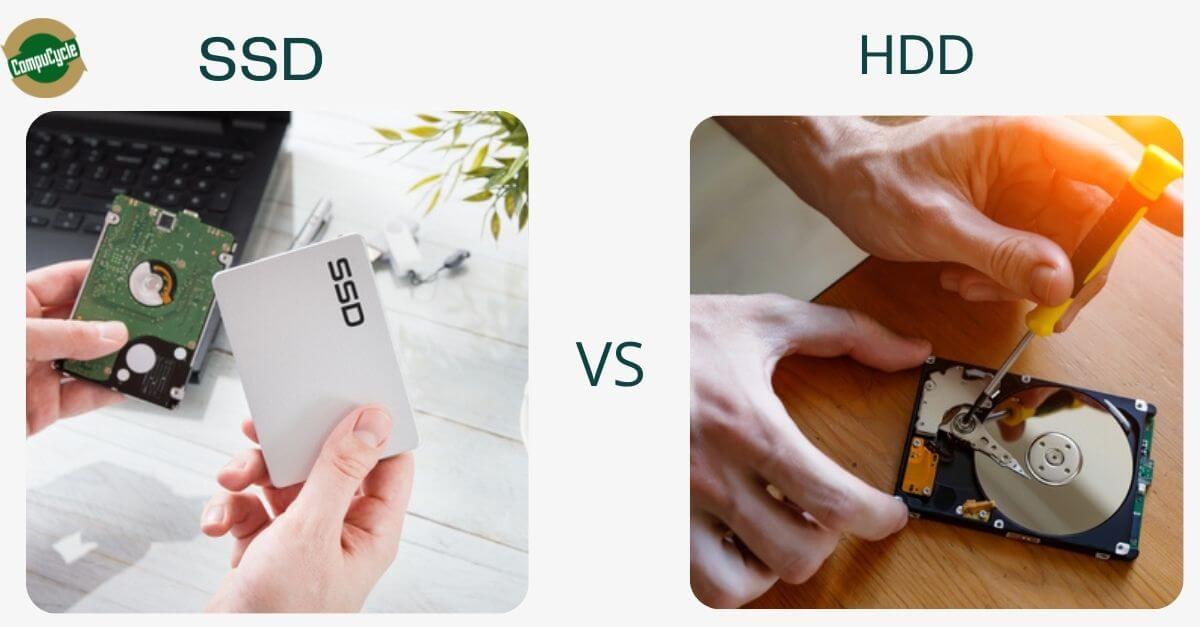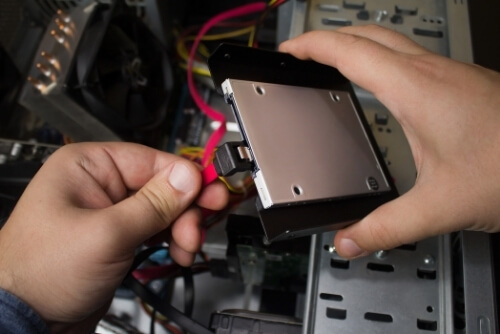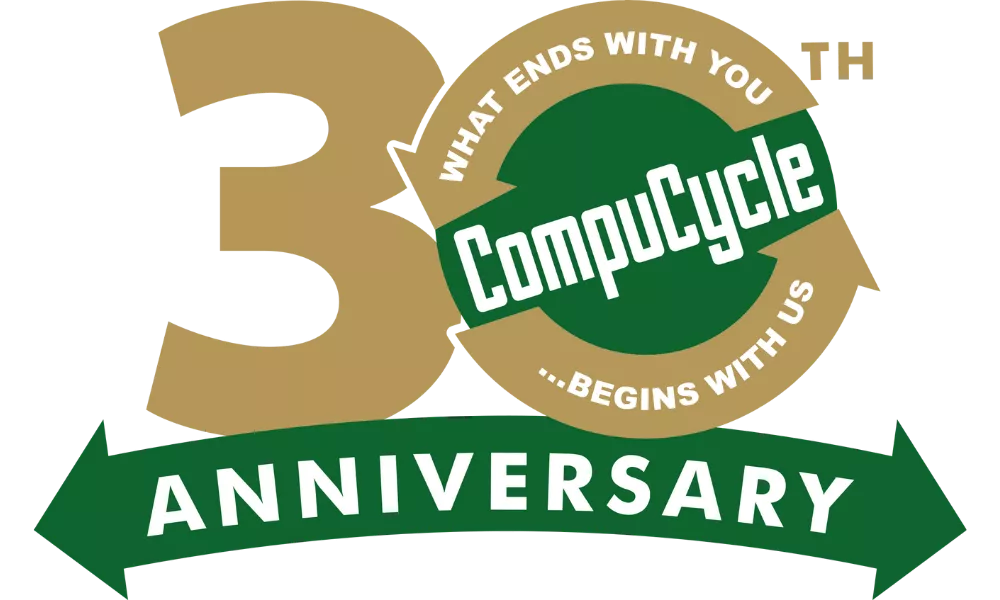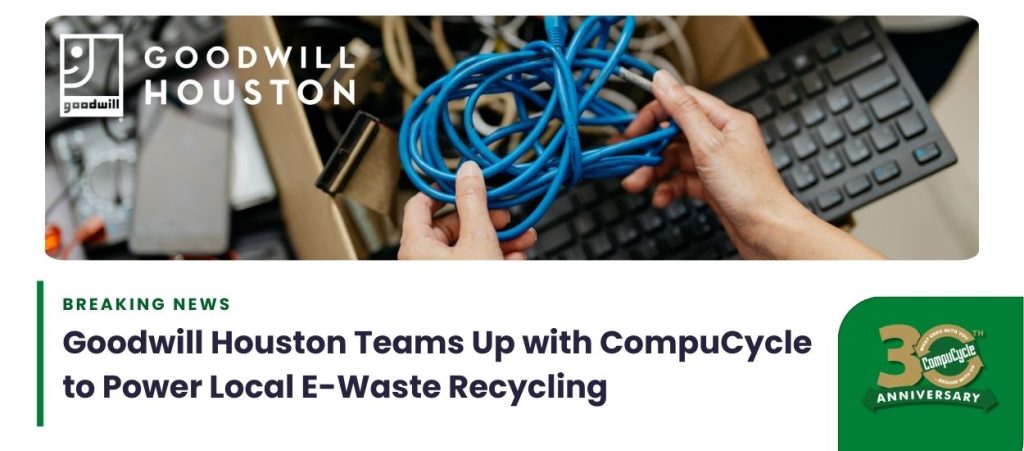
As your company is beginning the IT asset disposition process, one of the most critical elements to consider is the ITAD company’s capacity for HDD destruction and SSD destruction. Because SSD and HDD components are different, ITAD companies must employ tactics to ensure proper destruction and shredding of both.
While your company likely operates thanks to dozens, hundreds, or thousands of computers, tablets, and other techs, you may be unaware of the inner workings of these devices: drives. A drive is made up of various metals and magnet components built to store your data. Drives enable the “thinking and memory” within computers, gaming devices, and a bevy of electronics. Not all drives offer the same advantages during their lifetimes, and so they cannot necessarily be handled in the same way at the end of their life cycles. As such, it is important to understand the differences between SSD, or solid-state drives, and HDD, or hard disk drives. While SSDs and HDDs are very similar physically, their mechanisms for storing data differ.

Hard disk drives have a 50+ year history. Like so many technologies, their storage capacities have increased, while their size has decreased over time. HDDs have spinning disks (also called platters) to read, write and store data. Most HDDs provide as much or more storage than SSDs and are typically less expensive because they offer an older, more proven technology. Conversely, solid-state drives operate using newer technology: flash memory. Their mechanics and size are often comparable to flash or USB drives. Because SSDs are newer, they are typically pricier. However, they are often lighter weight and cooler than heavy, higher energy-expending HDDs. You can learn more about key differences between the two at Crucial.com.
Next, it’s important to understand how the SSD destruction or HDD destruction service you utilize actually works. Key questions you’ll want to ask your service provider about and know the answers to include, “if my electronic equipment can be refurbished, what do you do to completely erase the data on the HDD or SDD within?,” or “if my electronic equipment cannot be refurbished, what type of shredder are you using to completely destroy the HDD or SDD and data within?” or “do you use a drive shredder to destroy HDD and SDDs?”
Because SDDs are often smaller and store data on microchips, standard shredding equipment may not suffice. It’s important to ask your data destruction vendor what type of shredding equipment they utilize if it’s on-site at their facility, or they can bring it to your facility so you can see it in action if they send your products off to a third party vendor for shredding (be weary if the answer is “yes”), and if it thoroughly and completely shreds both HDDs and SDDs.
Private, proprietary or sensitive data lives within the electronic equipment and memory devices (the various drives) you no longer need. Typically, the easiest way to ensure data destruction is to destroy the devices themselves. Hard drive shredding is similar to document shredding. The actual drive is physically chopped into tiny fragments by a machine. Unlike physical paper documents, which could potentially be reassembled, a shredded drive is ultimately destroyed permanently. Keep in mind, though, that no two electronic shredders are the same.
At CompuCycle, we offer mobile shredders, which we can bring to your facility, and a state-of-the-art industrial shredding machine that completely destroys the mechanisms found within both SSDs and HDDs and thousands of other electronic assets. Our multi-million dollar, on-site shredding system is able to shred up to 40,000 pounds per day (or 1,000 hard drives per hour) and separates and sorts everything into like materials after shredding. Most importantly, because the shredding system is housed at our facility, we never outsource shredding to third-party vendors, which is commonplace for many other data destruction companies. We offer all clients a certificate of destruction to show proof that your electronic equipment AND the data within are completely destroyed.
CompuCycle’s team of experts is here to help you understand the nuances of destroying specific electronic equipment, AND we boast the capabilities to wipe, shred and destroy all of your technological devices, no matter how large or small. Learn more about our hard disk drive, media, and SSD destruction services, or contact a sales representative to get started today at 713-866-8026.
Recent Articles
The $987 Billion Question: Is Your ITAD Partner Ready for AI’s Hardware Avalanche?
The data center industry is experiencing an infrastructure transformation unlike anything since the advent of the internet era. While headlines focus on the trillions being poured into AI infrastructure, a critical downstream challenge is emerging…
Goodwill Houston Partners with CompuCycle to Offer Simple, Responsible Electronics Recycling for the Community
Goodwill Houston and CompuCycle have partnered to give Houstonians a simple, trustworthy way to donate and recycle household electronics.
Through this collaboration, residents can drop off laptops, desktops, tablets, monitors, and other household electronics at participating Goodwill Greater Houston donation centers. Reusable items help fund Goodwill’s job training and community programs, while non-resellable electronics are sent directly to CompuCycle’s certified Houston facility for secure, fully in-house recycling—ensuring materials are responsibly processed locally from start to finish.
CompuCycle Becomes Exclusive Woman-Owned E-Waste Processor in Texas with ISO 27001 Data Security Certification
New Information Security Management System (ISMS) Certification Guarantees End-to-End Data Confidentiality and Integrity for Corporate IT Asset Disposition (ITAD). HOUSTON, TX – December 9, 2025 – CompuCycle, an industry leader in secure and sustainable IT…
Secure Electronics Disposal in Houston: Why the City’s Largest Industries Trust CompuCycle
When a major healthcare system decommissions thousands of laptops, or an oil and gas company retires an entire data center, one question comes up again and again: What happens to all that data — and…



